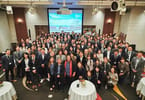BEIJING, China – Chinese lawmakers mulled a draft tourism law on Tuesday that outlines measures to curb rocketing ticket prices amid the country’s tourism boom.
The draft law on tourism was tabled for its third reading on Tuesday at the bimonthly session of the Standing Committee of the National People’s Congress (NPC), the country’s top legislature.
After previous readings in August and December, the current version of the draft includes procedures and rules to curb price hikes on tickets for scenic spots.
Some lawmakers said that wanton price increase in some scenic sites is becoming “a prominent problem,” calling for measures to restrain such practices, the report from the NPC’s Law Committee said.
According to the draft, tourism sites developed using public resources should strictly control rises in entrance fees or other additional charges. They will also have to hold public hearings if they plan to raise prices so as to prove it is a necessary and reasonable move.
The bill also bans “hidden price increases” through increasing programs for extra charges. Such programs should reduce or even abolish charges once the investment has been recouped, the draft stipulates.
Hefty entry fees at the country’s popular tourist destinations and reports of price hikes at some well-known scenic spots have caused widespread concern in the country, especially when it is embracing a three-day public holiday at the end of the month.
In a latest case, Fenghuang Township in central China’s Hunan Province recently upset local businesspeople and tourists by introducing a fee collection policy that authorities claim is meant to better protect the town.
According to the new policy, effective earlier this month, tourists are required to pay 148 yuan (23.5 U.S. dollars) to enter the 300-year-old town renowned for its well-preserved architecture which used to be free to enter.
“The draft includes measures to address many problems in tourism which have aroused strong public complaint and answers public calls to standardize tourism market order,” said Yin Zhongqing, a senior legislator and a key drafter of the bill, on Tuesday at a panel discussion.
To keep tourists better informed and ensure their safety against the backdrop of the country’s tourism craze, which is especially apparent during public holidays, the draft law stipulates that tourism sites should issue early warnings to the public if the number of tourists at a site is expected to reach maximum capacity.
Operations could be suspended for six months for scenic areas that fail to issue such warnings and take necessary measures to ease the flow of visitors or those that receive tourists in excess of the maximum capacity, according to the draft.
During the deliberation, Yan Xiaopei, a member of the NPC Standing Committee, suggested that apart from the maximum capacity, the draft should also include regulations concerning “the optimum capacity” of scenic sites to help tourists make their decisions on travel destinations.
In response to public calls to enhance resource protection, the draft added that natural resources and cultural relics for tourism use should be developed lawfully.
Some lawmakers have suggested that the bill could introduce measures to curb uncivilized behavior among some tourists, as such behavior has had negative impacts on society, according to the report from the Law Committee of the NPC.
The draft also includes guidelines stating that tourists should follow norms of civilized behavior, and tour guides should inform and explain the norms to tourists and dissuade them from immoral social behavior.
In addition, the bill includes a provision to counter the rampant practice of “zero- or negative-fare tours” in China that undermine the legitimate interests of tourists and businesses.
“Zero- or negative-fare tours” usually refer to tour services sold by travel agents at or below cost in order to attract travelers, who are later forced to purchase goods or tip agents during their tour.
Travel agencies may not sell services at “unreasonably low” prices to attract tourists or seek illegitimate profits by arranging for tourists to purchase goods at designated stores or any paid travel sessions other than those listed in the contracts, according to the draft.
In response to calls from some lawmakers, the bill also imposes a three-year ban on those whose tour guide certifications have been revoked for luring or forcing tourists to purchase goods or for unnecessarily changing tour itineraries.
China’s domestic travel market is the largest in the world, and the country ranks third in terms of tourists received from overseas.
WHAT TO TAKE AWAY FROM THIS ARTICLE:
- To keep tourists better informed and ensure their safety against the backdrop of the country’s tourism craze, which is especially apparent during public holidays, the draft law stipulates that tourism sites should issue early warnings to the public if the number of tourists at a site is expected to reach maximum capacity.
- Hefty entry fees at the country’s popular tourist destinations and reports of price hikes at some well-known scenic spots have caused widespread concern in the country, especially when it is embracing a three-day public holiday at the end of the month.
- Operations could be suspended for six months for scenic areas that fail to issue such warnings and take necessary measures to ease the flow of visitors or those that receive tourists in excess of the maximum capacity, according to the draft.






















